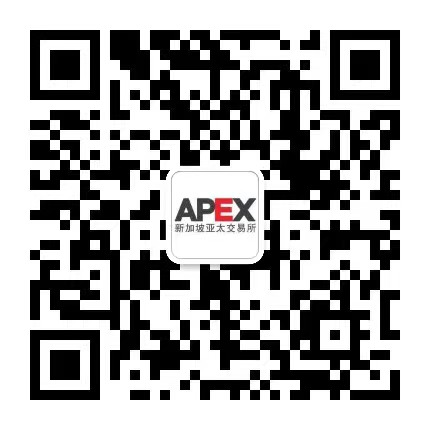
by APEX News | 2019-04-18

Singapore-based Asia Pacific Exchange (APEX) launched its fourth product, its Crude Palm Oil Futures Contract (CPF), on 18th April 2019 at 9:00am.
By the end of the first trading day, a total of 10,090 lots were traded with an open interest of 1,164 across all 12 monthly contracts.
The APEX Crude Palm Oil Futures Contract is the second in the palm oil series and also holds similar features to the first product, APEX RBD Palm Olein Futures Contract.
Every contract will represent 10 metric tonnes of crude palm oil denominated in US-dollars, which addresses the needs of the physical market from around the region as well as internationally.
Another feature of the contract is in the delivery locations. In addition to the four approved ports along the Straits of Malacca, APEX has included a fifth port in Lahad Datu in East Malaysia. With this new location, all commercial participants in East Malaysia, West Malaysia and Indonesia can take part in physical delivery, and this greatly expands the market coverage and depth so that more palm oil customers can enjoy the service.
Similar to the RBD Palm Olein Futures, physical delivery of the contract can be performed based on free-on-board (FOB) terms should the contract be held until expiry.
APEX Crude Palm Oil Futures will operate in parallel with the APEX RBD Palm Olein Futures and increase the arbitrage opportunities available in the palm oil market. Modifications have been made to the original RBD Palm Olein Futures so that its design is consistent with the Crude Palm Oil Futures. The amended RBD Palm Olein Futures will take effect within a month and both Contracts are expected to grow together.
APEX aims to continually design new contracts to fill market gaps so as to improve price discovery and efficiency in the palm oil as well as other commodity markets.
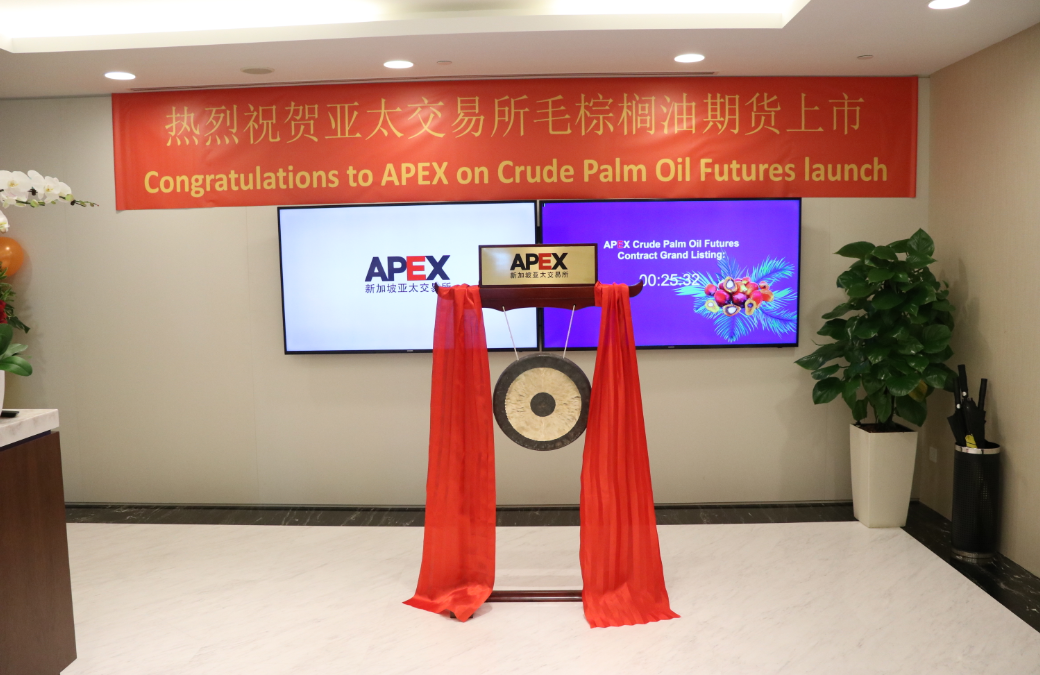
by APEX News | 2019-04-17
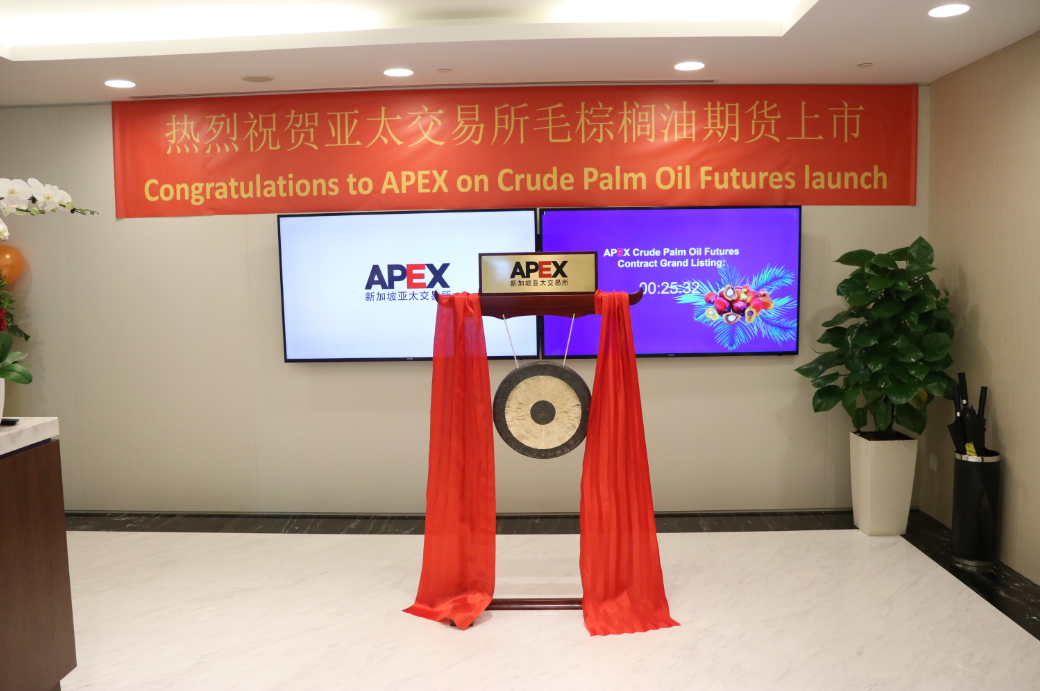
Singapore-based Asia Pacific Exchange (APEX) launched its fourth product, its Crude Palm Oil Futures Contract (CPF), on 18th April 2019 at 9:00am.
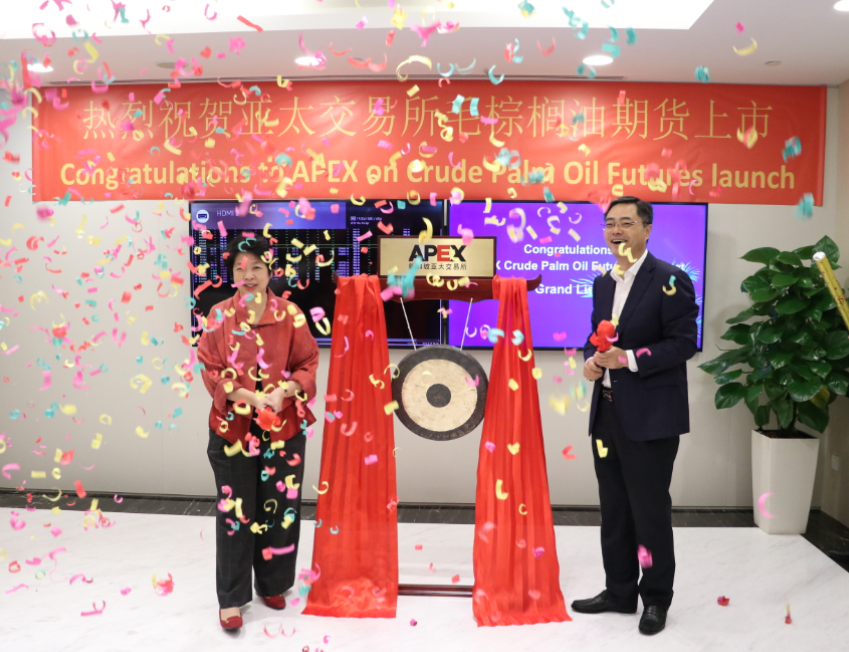
Singapore-based Asia Pacific Exchange (APEX) launched its fourth product, its Crude Palm Oil Futures Contract (CPF), on 18th April 2019 at 9:00am.
By the end of the first trading day, a total of 10,090 lots were traded with an open interest of 1,164 across all 12 monthly contracts.
The APEX Crude Palm Oil Futures Contract is the second in the palm oil series and also holds similar features to the first product, APEX RBD Palm Olein Futures Contract.
Every contract will represent 10 metric tonnes of crude palm oil denominated in US-dollars, which addresses the needs of the physical market from around the region as well as internationally.
Another feature of the contract is in the delivery locations. In addition to the four approved ports along the Straits of Malacca, APEX has included a fifth port in Lahad Datu in East Malaysia. With this new location, all commercial participants in East Malaysia, West Malaysia and Indonesia can take part in physical delivery, and this greatly expands the market coverage and depth so that more palm oil customers can enjoy the service.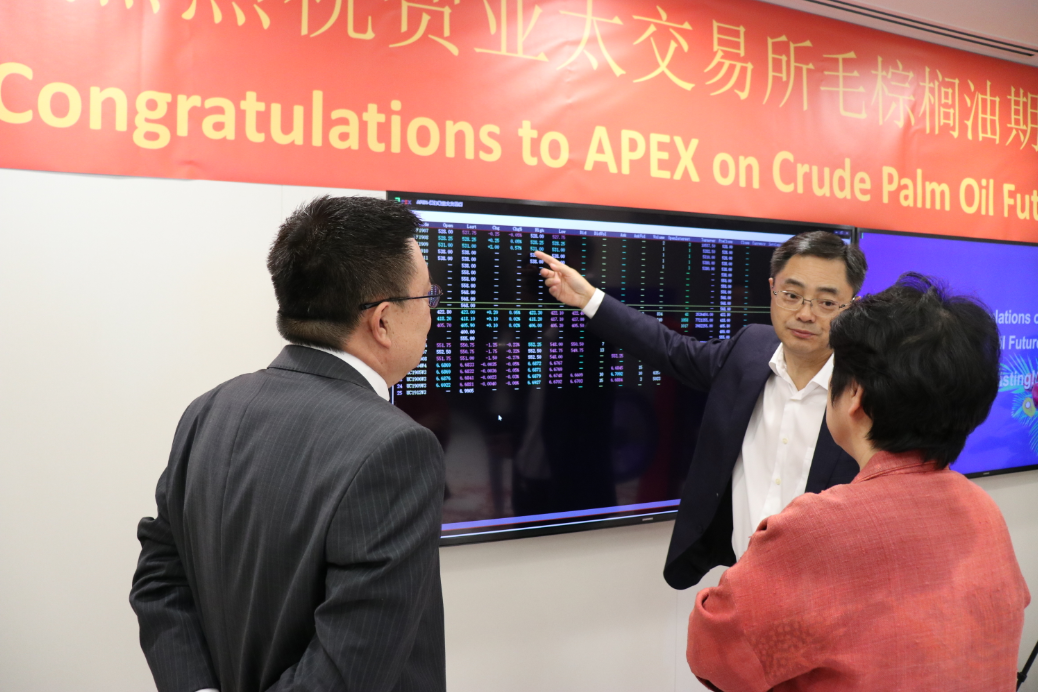
Similar to the RBD Palm Olein Futures, physical delivery of the contract can be performed based on free-on-board (FOB) terms should the contract be held until expiry.
APEX Crude Palm Oil Futures will operate in parallel with the APEX RBD Palm Olein Futures and increase the arbitrage opportunities available in the palm oil market. Modifications have been made to the original RBD Palm Olein Futures so that its design is consistent with the Crude Palm Oil Futures. The amended RBD Palm Olein Futures will take effect within a month and both Contracts are expected to grow together.
APEX aims to continually design new contracts to fill market gaps so as to improve price discovery and efficiency in the palm oil as well as other commodity markets.
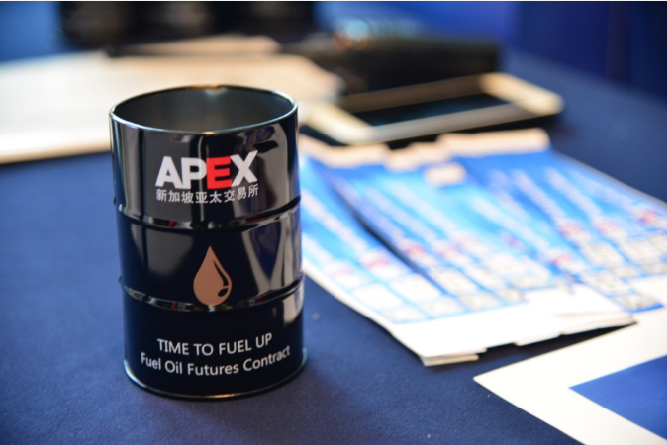
by APEX News | 2019-04-15

The launch of the APEX 380cst Fuel Oil Futures Contract (FO) on 11th April 2019, 9.00PM have generated huge interest from the media and market participants. Total trading volume was 16,793 lots, with a turnover of US$ 70,193,026 and total Open Interest of 2088.
The most actively traded contracts were FO1908, FO1909 and FO1910.
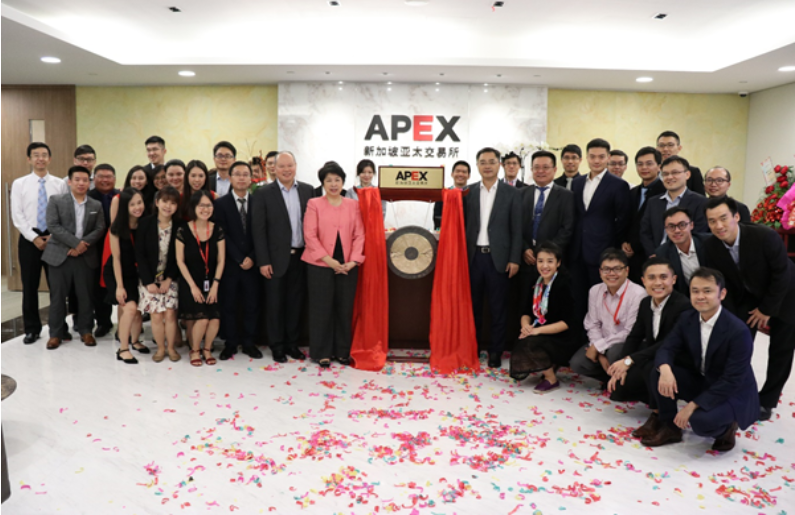
The news on the launch of APEX’s 380cst Fuel Oil Futures Contract has been welcomed by many industrial participants.
Miss Unni, Executive Director of International Bunker Industry Association (IBIA) commented: “Singapore is the world’s largest refuelling and trading port for bunker fuel oil, with numerous market participants. APEX’s new fuel oil futures contract is expected to form a new pricing benchmark for fuel oil trades, playing an active role in providing market price discovery and arbitraging opportunities for participants.”
Mr. Tony Lin, Executive Director & Head of Crude Oil and Fuel Oil of Zenrock Commodities Trading Pte. Ltd. provided his insights: “APEX’s Fuel Oil Futures Contract has long trading hours, providing a continuous trading window for the market. The physical delivery mechanism guarantees the convergence of spot-futures prices, enhancing fuel oil’s hedging and arbitrage opportunities.
As a trading company based in Asia, with fast growing global reach, Zenrock International is conducting research on the new opportunities that the new product can bring. We believe that the development of the APEX Fuel Oil Contract will bring great benefits to the spot trade and investment opportunities in the fuel oil industry.”
Market participants can trade through any of APEX’s Clearing Members or any other broker who has an account with a Clearing Member of APEX. APEX Clearing Members are Phillip Futures Pte. Ltd., KGI Securities (Singapore) Pte. Ltd., HGNH International Financial (Singapore) Pte. Ltd., DA Financial Service (Singapore) Pte. Ltd., Straits Financial Services Pte. Ltd., UOB Kay Hian Private Limited and the new Clearing Member Yongan International Financial (Singapore) Pte. Ltd.
Participants can view real-time market data through various platforms, such as Bloomberg, Reuters, Webstock myTrader, Wind Financial Terminal, Pobo5, DZH and Xinhua News Agency etc. Also, participants would be able to view real- time market data on the newly released APEX Mobile app.
For more information, please refer to the 380cst Fuel Oil Futures Contract Specifications and Contract introduction.
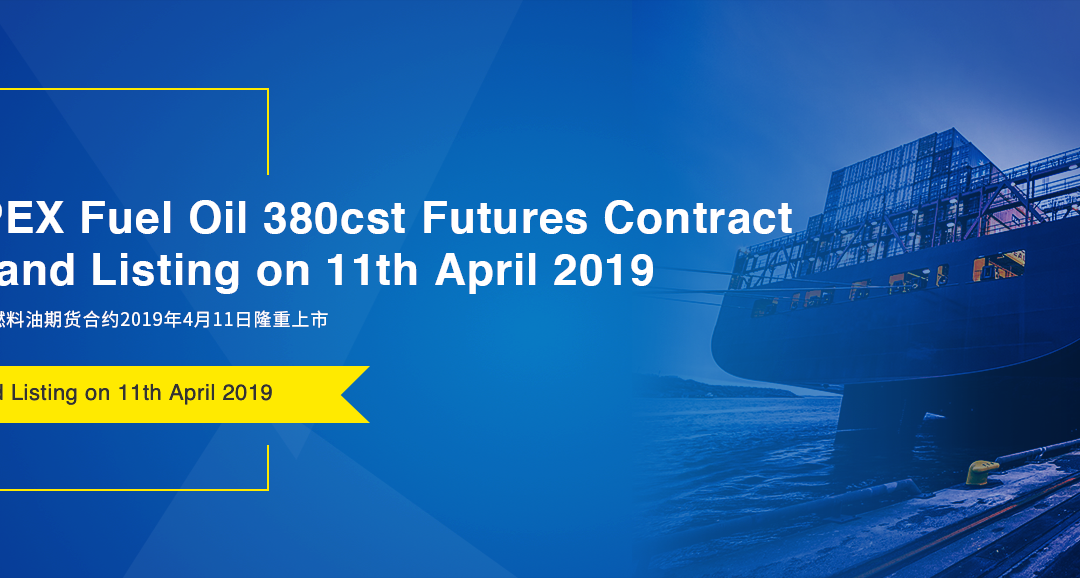
by APEX News | 2019-04-11

On 11th April 2019, 9PM Singapore time, Asia Pacific Exchange (APEX) will officially launch the 380cst Fuel Oil Futures Contract (Contract Code: FO) for trading.

Market Situation
Singapore is currently the largest bunkering port in the world, supplying approximately 50 million metric tons of marine fuel oil annually. The maritime industry remains a huge part of the Singapore Economy, contributing around 7% to Singapore’s Gross Domestic Product (GDP). The new IMO 2020 regulations are expected to have a huge impact on Singapore’s maritime industry and the fuel oil market.
Singapore contributes up to a quarter of world’s total marine fuel oil usage, serving as Asia’s pricing centre for marine fuel oil. As fuel costs remain the biggest cost item for shipping companies, huge price fluctuations in marine fuel oil prices in recent years can adversely affect operational costs for many companies, which may cause a ripple effect on the Singapore economy.
The largely volatile marine fuel oil prices have fluctuated up to 100%, urging associated industries to hedge the risk of adverse price movements. In addition, the upcoming IMO 2020 Rule brings further uncertainty and challenges in the market. Currently, there are limited hedging tools in the local market for marine fuel oil, with most local participants relying on Over-The-Counter (OTC) Market or hedging tools from Paper Markets, active participants using the PLATTS Market. In addition, many Chinese participants utilize the Shanghai Futures Exchange (SHFE) contract to hedge their risks. Despite the presence of these markets, there remains several constraints such as exchange rate fluctuations and large contract denominations.
Besides that, there have been controversies over the quality of marine fuel oil in recent years, where physically delivered marine fuel oil failing to meet the required specifications. The newly designed APEX Fuel Oil Warehouse Receipt (AFOWR) Delivery System is expected to overcome these obstacles, by warranting the product specifications through rigorous quality inspections.
In light of the current situation, APEX launched the 380cst Fuel Oil Futures Contract, to create a platform for Energy industries and Financial institutions to hedge and invest in the fuel oil market.
Key Contract Features
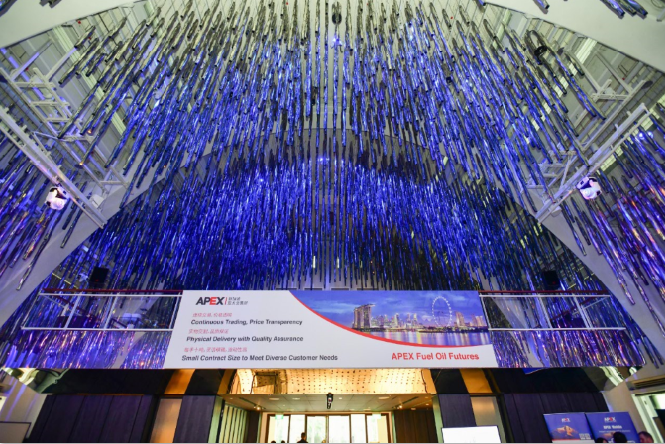
Firstly, the small contract size of 10MT/contract enables all market participants, small or large, to participat
e in the market. Furthermore, the contract is US dollar denominated, reducing exchange rate risks and providing investors with intuitive arbitrage opportunities such as spot-futures, cracking spread and cross-market arbitrage.
Secondly, the contract is expected to provide price transparency for the fuel oil market, as the contract is continuously traded in the market. Trading hours cover Platts Singapore, Shanghai Futures Exchange (SHFE) and Intercontinental Exchange (ICE), effectively connecting Singapore, Shanghai, European and American markets. This flexibility presents ample of trading opportunities, where clients can consistently receive live information on the fuel oil prices.
Lastly, the contract is settled through physical delivery, via the use of APEX Fuel Oil Warehouse Receipts. This unique method of physical delivery is the first in Singapore, and is expected to bring increased convenience to the marine fuel oil market. Participants can choose to load-in their fuel oil to APEX Approved Warehouses, where they can store or sell their products to potential buyers. The unique methodology ensures that the product conform to the specifications during physical delivery, reducing the risks of low quality products.

For further information, please refer to APEX Fuel Oil 380cst Futures Contract Specifications.
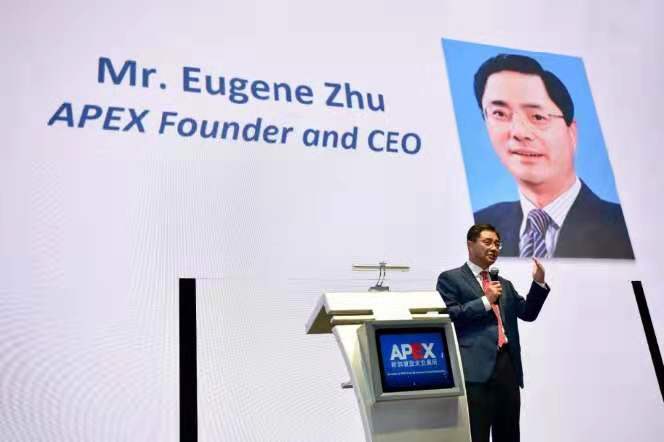
by APEX News | 2019-01-22

一篇论文定命运
回首过往,可以说,是一篇期货论文踩准了时代节拍,决定了我的人生发展轨迹。1986年,我在东北财经大学攻读商业经济学硕士学位,写了篇题为《建立和发展我国期货市场初探》的论文,在中国社科院《财贸经济》杂志上发表。这是中国学术期刊中可查的第一篇以建设中国期货市场为主题的论文。这篇论文得到了时任商业部部长刘毅同志的高度重视,也让刘毅部长对我有了深刻的印象。由此,1987年研究生毕业后,我来到商业部工作,担任刘毅部长的秘书。
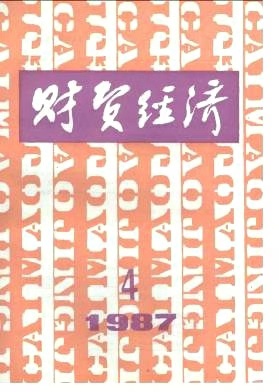
当时我并不知道,那篇关于期货市场的论文也得到了时任国务院发展研究中心常务干事、市场组主任田源同志的重视,因此我也受到了他的关注。1988年2月10日,时任国务院总理的李鹏同志亲笔致函国务院发展研究中心总干事马洪同志,要求组织专门力量研究国外期货市场制度,解决大宗商品价格波动问题,保护生产者和消费者利益。马洪同志把这个任务交给了田源,田源随即组织了国家体改委、商业部等机构的部分同志,成立了期货市场研究工作小组(以下简称期货研究小组),田源同志作为发起者,任组长,杜岩、常清、廖英敏、刘俊英等同志都是骨干成员,我也成为其中的研究骨干之一,而我的期货生涯也从此正式开始!
“北京烤鸭”将上期货
1989年10月,经芝加哥Sidley Austin LLP 律师行合伙人杰夫·哈里森先生介绍,我来到芝加哥商业交易所(CME)进行为期四个月的工作研修。中国人第一次在期货“圣地”芝加哥CME和CBOT两家期货交易所接受系统培训,这在当时的芝加哥成了新闻。他们在报刊上刊登了我在交易池里的大幅照片并报道:一个中国人在CME——看来“北京烤鸭”将上期货。
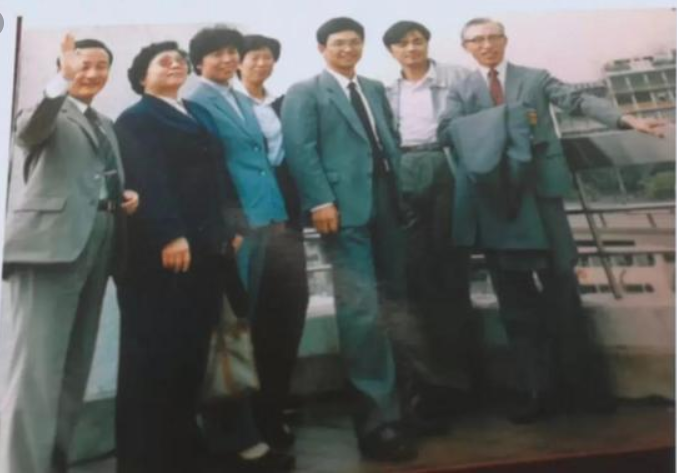
1990年5月份,我回到北京,开始参与中国期货市场建设实践。1990年下半年,商业部成立了全国粮食批发市场管理办公室,设在中国粮食贸易公司。我担任办公室副主任一职,具体负责全国八大粮食批发市场引入期货机制工作。当时粮价处于计划价格和市场价格双轨运行时期,直接开展期货交易显然有一定的困难,但可以通过引入期货机制(譬如保证金制度、标准化合约、竞价机制等)建立远期市场,以改造我们传统的粮食批发市场。在这样的思路下,当时国内八大批发市场被纳入试点,其中郑州试点推进速度很快。1990年年底,新中国第一家具有期货机制的市场——中国郑州粮食批发市场鸣锣开市,1993年又成立了郑州商品交易所。期间我奔赴郑州十余次,牵头并执笔起草了中国郑州粮食批发市场主要交易、结算规则。
50万元创办上海中期
1992年,物资部对外经济合作司田源同志提议,由物资部与商业部合作设立期货公司。1992年年底,由物资部和商业部直属企业为主要股东,联合投资成立中国国际期货公司(以下简称中期)。田源任董事长,卢建任总裁,我和王新政、张新华任副总裁。
1992年春节刚过,我从中期总部领取了一张50万元支票,单枪匹马来到上海,开始创办上海中期。那时创业很艰苦,我带领公司人员白天从事国内期货交易,晚上从事国际期货代理,使公司业务蒸蒸日上,成为中期体系内最大的期货公司,也是当时国内期货公司中单体规模最大的期货公司。1994年、1995年,我又陆续接管了深圳中期、武汉中期、沈阳中期、辽宁中期四家期货公司。
大连商品交易所“保卫战”
1996年10月我加入大连商品交易所(以下简称大商所)。那时我国的期货市场刚经过第一轮清理整顿,全国仍有15家期货交易所,但由于整个市场自律管理体系尚未建立,规则体系不完善,风险事件频发,第二次清理整顿迫在眉睫。在此情况下,大商所面临着是否能保留下来的严峻挑战。
为了生存和发展,当时一些交易所将目光盯在交易量上,而忽视市场风险的防控,风险事件频发,临时通知满天飞。美国期货市场的发展经验告诉我,期货市场源于套期保值的需求,期货市场是管理风险而不是制造风险的市场,风险防范是期货市场的生命线。大商所地处东北一隅,东北是玉米、大豆的主产地、大粮仓,大连是东北粮食外运的中枢,在中国社会主义市场经济条件下建设和发展期货市场,我们要时刻不忘市场建立的初衷,要基于地区实体经济的基础,发挥期货市场服务实体经济的功能。
在这样的思路下,大商所耐住了寂寞,专心于“做事”而不是“做市”,保持了市场平稳运行和期货功能的正常发挥,取得了保卫战的最终胜利,成为仅存的三家期货交易所之一。
两封信和一个“工程”
2003年,我们更加深入地走进产业,从“三农”服务切入,开启了一系列的产业服务探索。
2003年9月,国际国内大豆期货价格启动了一波快速上涨行情,大豆期货价格很快由每斤1.05元左右涨至1.25元以上,创出10年来的新高。在这样的背景下,国庆节一过,我来到黑龙江,走进田间地头开展调研。那时东北农民已经开秤卖豆,但调研时发现,很多豆农还在根据去年秋天和当时周边商贩的收购价,以每斤1.05元甚至更低价格出售。看在眼里,急在心头,10月9日,我给时任黑龙江省委书记宋法棠写了一封“关于确保种豆农民增收的紧急建议”的信,提出希望引导农民把握这次行情,把手中的大豆卖出好价钱。在宋法棠的批示下,黑龙江电视台等媒体连续播报国际国内大豆价格情况,产区大豆收购价格迅速与销区价格对接,持续上调,切实保护了豆农的利益。
2004年3月,在国际、国内大豆价格达到十五年来新高之际,我借在北京参加“两会”的机会给国务院领导写了封建议信,呼吁引导东北豆农利用期货市场先卖后种,在扩种大豆的同时利用期市避险,促进农民增收。当时温家宝总理和黄菊、回良玉副总理均做出重要批示,黑龙江地区的一些企业开始积极与农民寻求合作,引导农民提前在期货市场卖豆。
在2003年的信息服务和2004年“先卖后种”两次有效尝试下2005年,我和大商所人又开始了一个更为宏大的计划——开展“千村万户市场服务工程”,引导广大农民利用现代市场机制指导生产经营,为当地粮食产业发展带来了新的活力。
筹备中金所,四年才开业的“猪坚强”
2006年6月中国金融期货交易所正式成立,我被委任为党委书记、总经理。建立初期,证监会领导给我的指示是:抓紧筹备,争取半年准备好,最多不能超过一年。可是,事与愿违,等开业的指令一等就是四年。
在那漫长的一千多个日夜里,我和中金所的同仁们并不是被动地在“赋闲”。一方面,我带领着队伍开展了仿真交易;与此同时,组织了轰轰烈烈的投资者教育活动预热市场;此外,还组织大批员工到期货公司业务一线锻炼,打破交易所与期货公司之间的“楚河汉界”,使员工直接接触客户、了解客户的需求。
天道酬勤,漫长的四年过去了,2010年4月,我们把握住时间窗口,顺利推出了沪深300股指期货,清理整顿后中国第一个真正意义上的金融期货扬帆起航!
再出发、下南洋
创办新加坡亚太交易所
期货交易所是重要的金融基础设施,是金融中心标志性机构,如果中国资本走出国门在新加坡投资设立交易所,其意义不亚于在东南亚修建铁路、公路等基础设施。由此,在“一带一路”沿线的重要节点-新加坡,建设一家开放的衍生品交易所的愿望在我脑海中升起。
经过近两年艰苦而曲折的筹备工作,新加坡亚太交易所终于在2018年5月25日鸣锣开市,第一个品种——精炼棕榈油期货合约平稳推出!
这是中国企业和中国资本第一次走出国门创办衍生品交易所。我们给交易所确立的使命是打造大宗商品亚洲价格基准,而且我们坚信我们的愿望一定能够实现。未来条件成熟后,亚太交易所部分品种将直接采用人民币计价,以离岸方式服务在岸市场,从而为推动人民币国际化和服务国家战略作出自己的贡献!
(摘自《当代中国期货市场口述史》)






